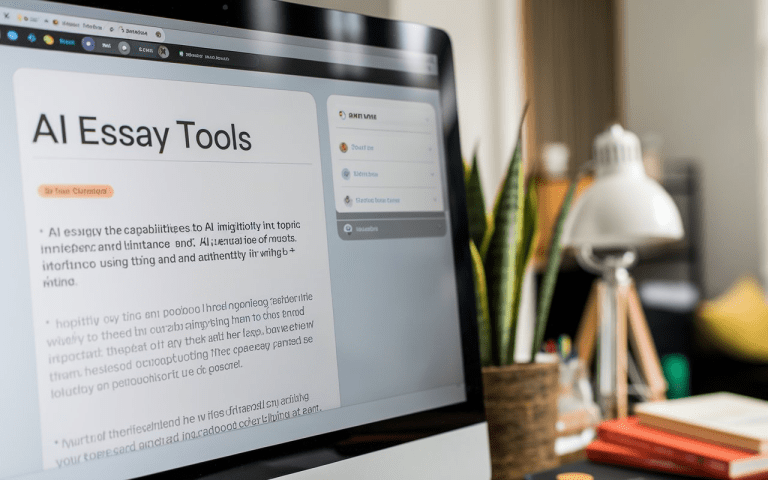How to Make a Reference List: A Step-by-Step Guide
Academic papers need a complete list of sources. But do you know how to format it right? We’ll show you how to make a perfect reference list that meets current citation rules. Are you ready to learn how to reference like a pro and boost your academic standing?

Understanding Reference List Fundamentals
In academic writing, the reference list is key. It shows the sources used and lets readers find the cited works. This list, also called a bibliography, lists all sources mentioned in the paper.
What is a Reference List?
A reference list shows all sources you used in your paper. It gives readers the info they need to find the original works. This ensures proper academic writing and citing references.
Purpose and Importance in Academic Writing
The reference list has two main roles. It credits the authors whose ideas or research are used. It also helps readers find and use the sources in the paper for more research.
Basic Components of References
Every reference needs four parts: author, date, title, and source. Your citation style decides how to arrange these parts. Follow proper formatting for each source.
How to Make a Reference List: Essential Formatting Rules
Format your references correctly to look professional:
- Double-space the entire list
- No extra spaces between entries
- Use Times New Roman, 12-point font
- Add a hanging indent (1.27cm) for each entry
Here are the key formatting rules:
- List sources by author’s last name (A to Z)
- Articles: Capitalize first word only
- Books/Journals: Use italics
- These apply to both APA and MLA
| APA Style | MLA Format |
|---|---|
| Jones, A. B. (2020). The Art of Reference Formatting. Journal of Academic Writing, 15(2), 45-60. | Jones, A. B. “The Art of Reference Formatting.” Journal of Academic Writing, vol. 15, no. 2, 2020, pp. 45-60. |
| Smith, C. D. (2018). Referencing Essentials for Scholarly Works. Academic Publishing House. | Smith, C. D. Referencing Essentials for Scholarly Works. Academic Publishing House, 2018. |
Following these essential formatting rules ensures your reference list is well-structured. It will look good and follow the correct citation style (APA or MLA).
Citation Styles and Source Types in Reference Lists
When making references, pick the right style for your sources. Using APA style, MLA format, or other citation styles correctly helps your academic writing follow the rules.
Academic Journal Citations
For journal articles, write the journal title in full and italicize it. Keep any special punctuation or capitalization as is. The article title should not be italicized or underlined. This makes your reference list easier to read.
Effie: Elevate Your Academic Writing and Reference Management
Good citation and referencing gets easier with the right tools. Effie helps you write better papers and work smarter with AI. When you use Effie AI, you can:
- Sort your sources: Use Effie’s mind maps to arrange your references and keep them organized.
- Easy formatting: Effie makes sure your citations look right for any source – books, articles, or websites – without the extra work.
Book and Website Citations
Book citations need the author, publication date, title (italicized), and publisher. Website citations include the author (if there is one), date, title, and URL. It’s important to follow your chosen citation styles (like APA, MLA, Harvard referencing) for consistency and accuracy.
Effie’s Academic Edge
Effie is more than just a writing app. Its markup-based editor provides seamless formatting, enabling you to focus on writing instead of struggling with citation rules. Students and researchers alike can benefit from Effie’s:
- Built-in grammar and spell checks to polish academic papers.
- Cross-platform syncing to access work anywhere, anytime.
Effie’s versatility makes it an essential tool for tackling academic challenges with confidence. Whether you’re preparing a dissertation or a simple essay, Effie has you covered.

Digital and Online Sources
Online sources might need extra info like DOIs or retrieval dates. Keeping up with the latest apa style, mla format, and other citation styles is important. It makes sure your references are correct and meet your audience’s expectations.
Conclusion
Making a well-formatted reference list is key for keeping your work honest and letting readers find your sources. By using the right citation style and including all sources, you show you’ve done your homework. This also shows respect for others’ work.
Effie’s integrated tools can simplify your academic writing journey, ensuring your references are always on point. From citation formatting to bibliography management, Effie is your partner in achieving academic excellence.
Visit effie.pro to explore Effie and transform the way you manage references and write academic papers.
Source Links
- Library Guides: APA 6th Referencing Style Guide: Reference list – https://aut.ac.nz.libguides.com/apa6th/referencelist
- APA Reference Page Examples and Format Guide | Bibliography.com – https://www.bibliography.com/apa/apa-reference-page-examples-and-format-guide/
- Basic principles of reference list entries – https://apastyle.apa.org/style-grammar-guidelines/references/basic-principles
- LibGuides: Citation Styles: Reference List – Basics – https://libguides.asu.edu/c.php?g=263988&p=1765713
- Reference List: Basic Rules – Purdue OWL® – https://owl.purdue.edu/owl/research_and_citation/apa6_style/apa_formatting_and_style_guide/reference_list_basic_rules.html
Effortless Reference Management for Your Academic Success
Organize, format, and elevate your papers with Effie's AI-powered tools.
Try Effie Free






